Discover Damages
Damages

63 Episodes
Reverse
It’s no coincidence that the backlash against climate protest looks the same from country to country. Not only is industry sharing tactics across borders, but also the Atlas Network—a global network of nearly 600 libertarian think tanks—has been swapping strategies and rhetoric for decades. This episode features reporting from Amy Westervelt, Lyndal Rowlands, and Julianna Merullo from Drilled, and Geoff Dembicki from DeSmog. You can see a print version of the story at The New Republic or an even longer print version on our site here.
Learn more about your ad choices. Visit megaphone.fm/adchoices
Melinda Janki has filed seven separate cases aimed at blocking oil drilling in Guyana, but only one of them explicitly names climate change as a problem the project is guaranteed to exacerbate. It’s a constitutional case that invokes Guyana’s constitutional right to a healthy environment—an amendment Janki herself helped to write. Plaintiffs Dr. Troy Thomas and Quedad DeFreitas argue that the government’s choice to fast-track permits and oil production threatens their right to a healthy environment, and the rights of future generations too. The government of Guyana argues that, ironically, it needs oil money to adapt to climate change.
Learn more about your ad choices. Visit megaphone.fm/adchoices
Lots of news lately on stories we've been following, so in today's episode: an update! The landmark Carbon Majors report has been updated with some surprising new data, and the European Court of Human Rights has sent down an historic ruling that will shape how EU legislators look at energy and climate.
Learn more about your ad choices. Visit megaphone.fm/adchoices
Shell announced in late 2023 that it would be shutting down all of its onshore activities in Nigeria and concentrating its efforts offshore. It leaves behind poisoned water, multiple political and economic crises, and a country that is measurably worse off today than when its oil industry began. Meanwhile the government continues to target environmental activists.
Learn more about your ad choices. Visit megaphone.fm/adchoices
The U.S. government's definition of what constitutes an "ecoterrorist" has long driven backlash against environmental activists and in recent years that definition has only broadened. Investigative reporter and Drilled senior editor Alleen Brown dug into this recently and found that the Department of Homeland Security had been warning officials in Atlanta about the threat posed by "Defend the Atlanta Forest" for months before police raided the forest, ultimately killing one protestor, and charging dozens more with domestic terrorism and racketeering. It was such an overreaction that even mainstream media covered it.
Learn more about your ad choices. Visit megaphone.fm/adchoices
In June 2022, Michel Forst became the first UN Special Rapporteur on Environmental Defenders. In that role he has spent the past year visiting various countries and speaking out about the increasingly onerous laws and aggressive tactics being used against climate protestors. Today he released a statement on the UK, saying he is "extremely worried" about "the increasingly severe crackdowns on environmental defenders in the United Kingdom, including in relation to the exercise of the right to peaceful protest."
In this episode, our France reporter Anna Pujol-Mazzini talks to Forst about his new position, what it means, and what power he has to do something about the creeping crackdown on climate protest.
Learn more about your ad choices. Visit megaphone.fm/adchoices
About a decade after UK courts made history with the first "climate necessity" ruling in history, the UK government has passed new laws that not only restrict what protesters can do, but also how protesters are allowed to defend themselves in court. Some judges don't apply the new laws so strictly, but others have held people in contempt for just trying to explain themselves.
In some courtrooms, the climate necessity defense has been effectively outlawed. How did that happen? And how did it happen so quickly? That's our story today.
Learn more about your ad choices. Visit megaphone.fm/adchoices
While protests against the Dakota Access Pipeline at the Standing Rock Sioux Indian Reservation garnered international news coverage, at the southern end of the pipeline, cops moonlighting as pipeline security were suppressing free speech with impunity. In this episode, reporter Karen Savage tells us what happened at Bayou Bridge, and what lessons the story holds for the climate movement and for anyone who believes in the importance of democracy.
Learn more about your ad choices. Visit megaphone.fm/adchoices
In December 2023, the U.S. Army Corps of Engineers closed the comment period on its draft Environmental Impact Statement for the Dakota Access Pipeline, a 1,172-mile pipeline that’s been pumping 500,000 barrels of oil per day since May 2017.
The pipeline runs from the Bakken oil fields in North Dakota to southern Illinois, crossing the Missouri and Mississippi Rivers. Over the past six years, every court in the country has ruled that the Army Corps of Engineers did not study the pipeline’s environmental impact closely enough before approving the pipeline’s route. The Standing Rock Sioux tribe has maintained all along that the project poses a serious threat to its drinking water. From April 2016 to February 2017 thousands of water protectors from all over the country (and beyond) joined them in protests and direct actions. The resistance at Standing Rock is often cited by the fossil fuel industry, police and politicians as the reason states need new anti-protest laws, while the backlash to that resistance is often cited by water protectors as the reason for PTSD, asthma, and in some cases lost eyes and limbs.
Now, the Army Corps of Engineers says that removing the pipeline would be too damaging to the Missouri River and its surrounding ecosystems. The removal actions it describes in its EIS are the same actions taken to install the pipeline in the first place. The Army Corps suggests that removing the pipeline would be more environmentally harmful than allowing the oil to continue pumping under one of Standing Rock's primary drinking water sources. Nonetheless, this report—seven years late—represents one of the few pathways left to stop the pipeline.
The Standing Rock Sioux tribe is advocating to seal the pipeline off, while some water protectors are advocating for the pipeline to be removed entirely.
Learn more about your ad choices. Visit megaphone.fm/adchoices
As we resume our season focused on the global criminalization of climate protest, reporter Martha Troian brings us to Canada, where the Wet'suwet'en people have been fighting for years against a gas pipeline they never authorized on their territory.
Learn more about your ad choices. Visit megaphone.fm/adchoices
Globally, climate activism has shifted over the past few years. It’s more constant now and includes more direct action than ever before. Some of that action has critics, including climate scientists and climate advocates, clutching their pearls and worrying that protest will turn the public away from the urgent need to act on the climate crisis. But social science researchers who study structural change and protest say there’s no historical evidence to back that up; that in fact the only time social movements have ever affected change is when they’ve been wildly disruptive, and a whole lot of the people who love to quote MLK are missing a significant part of his approach to social change. In this week's ep we hear from social scientists on how radical or not climate protests really are, and what factors make direct action work or fail.
Learn more about your ad choices. Visit megaphone.fm/adchoices
From Ecuador to North Dakota, British Columbia to New Zealand, the backlash against Indigenous-led environmental protest is always particularly harsh, infused with colonialist entitlement to land, water, and other resources. Historian Nick Estes walks us through what that looks like in the U.S., and the great team behind the documentary The Territory brings us a recent example from Brazil. Check out the film here.
Learn more about your ad choices. Visit megaphone.fm/adchoices
In April 2023, Joanna Oltman Smith walked into the National Gallery in Washington, D.C. with fellow activist Tim Martin, and smeared water-soluble kids' finger paint on the glass display case containing a Degas statue called "Little Dancer." The two read off a statement about the importance of protecting actual, living children as well as we do sculptures of them. Smith and Martin figured they would be charged with vandalism, but each is now facing two felony charges, including one of "conspiring against the United States government." As we covered last month, one thing that makes it easy to criminalize protest is the steady hum of content that paints climate activists as fringe weirdos or out-of-touch elitists. We think it's important to meet these people and bring their stories and voices to you directly.
Learn more about your ad choices. Visit megaphone.fm/adchoices
We're bringing you this crossover episode from our sister podcast, Inherited, because there's a way in which the constant vilification of protestors and criminalization of their actions has effectively distracted a lot of people from the reason they're out in the streets or in museums or at sporting events in the first place: the climate crisis is already having a devastating impact on communities around the world, and it's only going to get worse. In this episode, Nigerian Mo Isu returns to his hometown of Lagos, meets an activist there, and heads with him to Lokoja – the town where Nigeria’s largest rivers converge – to explore how flood survivors endure the region’s relentless storm cycle.
Learn more about your ad choices. Visit megaphone.fm/adchoices
President Biden made his first trip to Vietnam as President this week, with the intention of "upgrading" diplomatic relations between the U.S. and Vietnam. Not on the agenda? The country's move to use trumped-up tax evasion charges to suppress civil society groups, including five climate activists that have been imprisoned using this tactic since 2021.
Read The 88 Project's report on this practice: https://the88project.org/weaponizing-the-law-to-prosecute-the-vietnam-four/
Learn more about your ad choices. Visit megaphone.fm/adchoices
Since the 2019 passage of the "Dangerous Attachment Devices" bill in response to anti-coal protests in Queensland, Australia's states have moved quickly to follow suit.
Learn more about your ad choices. Visit megaphone.fm/adchoices
When she was just 22, Disha Ravi, co-founder of Fridays for Future in India, had police show up at her home, borrow a pen and paper to write an arrest warrant on the spot, and bundle her onto a plane to fly across the country to a city she'd never been to. Here she explains what happened, how it's still impacting her two years later, and why she'll never let it stop her activism or force her out of India.
Learn more about your ad choices. Visit megaphone.fm/adchoices
There's a lot of discourse happening about free speech in the context of "cancel culture" these days, but precious little coverage of the push all over the world to criminalize protest...particularly environmental and climate protest. We'll be digging into this trend in detail over the next several months, but first a look at what prompted extractive industries to start agitating for governments to crack down on protest, what tactics they use, and why they've been so effective.
Learn more about your ad choices. Visit megaphone.fm/adchoices
Welcome to Outrage + Optimism, where they examine issues at the forefront of the climate crisis, interview change-makers, and transform anger into productive dialogue for building a sustainable future.
In this episode, the hosts discuss the slow progress made at the negotiations in Bonn and how the perceived lack of direction has led many in the climate community to feel anxious about how successful talks will be in Dubai later in the year.
Christiana also touches on the New World Bank report, Detox Development: Repurposing Environmentally Harmful Subsidies, highlighting the trillions of dollars wasted on subsidies for agriculture, fishing and fossil fuels that could be used to help address climate change instead of harming people and the planet.
With Tom off to the Global Citizen Power Our Planet Live event on Thursday, the hosts discuss their hopes for a more positive outcome from The Summit for a New Global Financing Pact also happening in Paris this week. Look out for the anticipated momentum to gather pace on Mia Mottley’s Bridgetown Agenda for the much needed reform of international finance.
Their special interview this episode is with the brilliant communications expert John Marshall, CEO of Potential Energy Coalition, to discuss climate change’s marketing problem and how we can solve it. Essential listening and the team here all agree we could learn a lot from John’s insights! For anyone wanting to learn more about the important work of Potential Energy, click here.
Music this week comes from Hazel Mei and her song Golden Chains, another finalist from this year's Environmental Music Prize. Check out her links below.
Thanks to Airaphon who mixed and sound edited the podcast this week. Please don’t forget to let us know what you think here, and / or by contacting us on our social media channels or via the website.
NOTES AND RESOURCES
SUBSCRIBE TO OUTRAGE + OPTIMISM HERE
John Marshall, Chairman and CEO of Potential Energy Coalition
LinkedIn | TED Bio
Potential Energy Coalition
Website | LinkedIn | Instagram
Hazel Mei, Environmental Music Prize Finalist
Instagram | Facebook | YouTube
For anyone wanting to watch the absurd Fox news interview with Power the Future founder, Daniel Turner, here is the link.
Learn more about the Paris Agreement.
It’s official, we’re a TED Audio Collective Podcast - Proof!
Check out more podcasts from The TED Audio Collective
Please follow us on social media!
Twitter | Instagram | LinkedIn
Learn more about your ad choices. Visit megaphone.fm/adchoices
In more than 30 climate cases making their way through U.S. courts today, oil companies are using an argument they've been laying the legal groundwork for since the 1970s: that since everything they've ever said about climate change was in the interest of shaping policy or blocking regulation, it's protected speech, even if it was misleading. In this episode we take a look at how those cases are playing out and the likelihood that this new take on "corporate free speech" could make it all the way to the Supreme Court.
Learn more about your ad choices. Visit megaphone.fm/adchoices


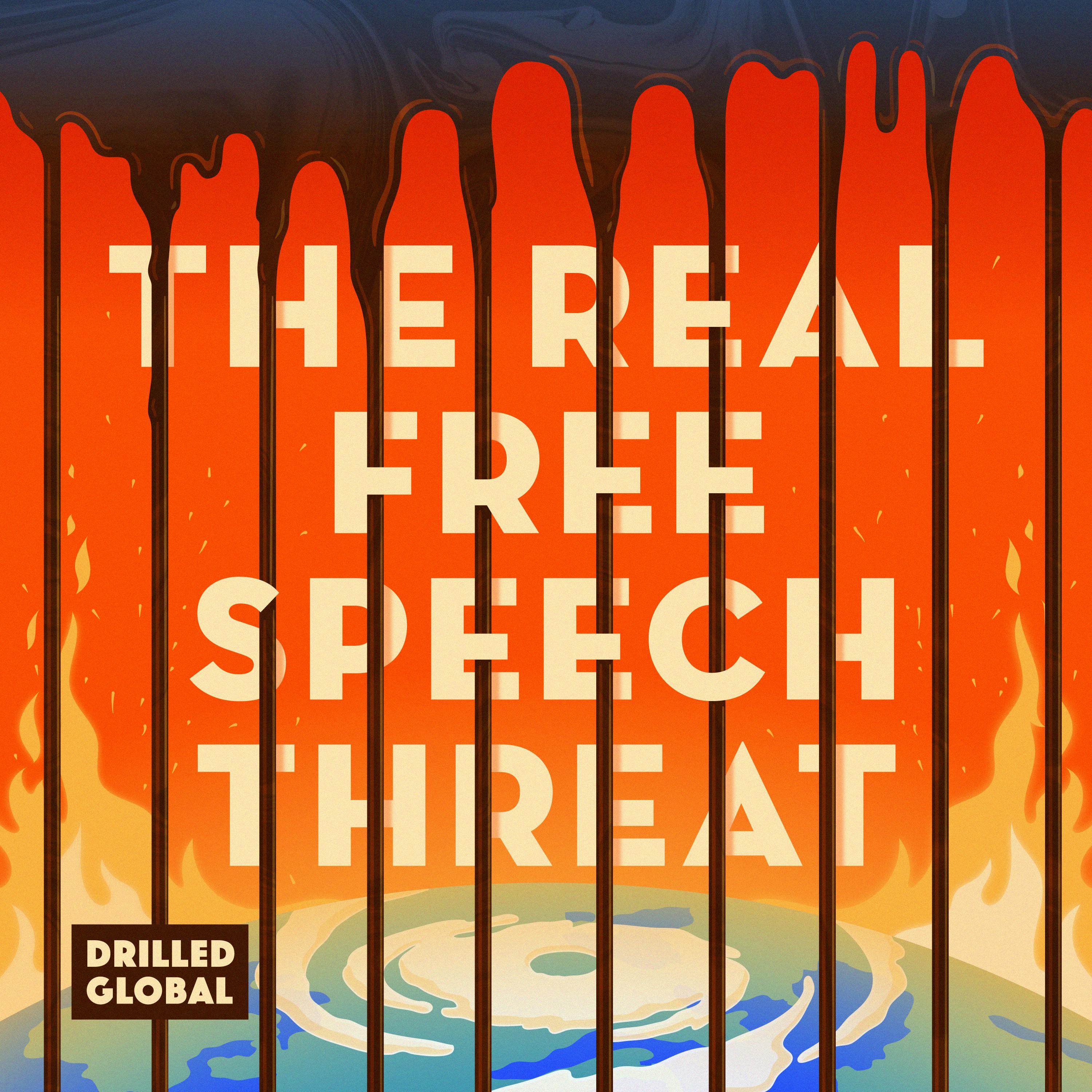










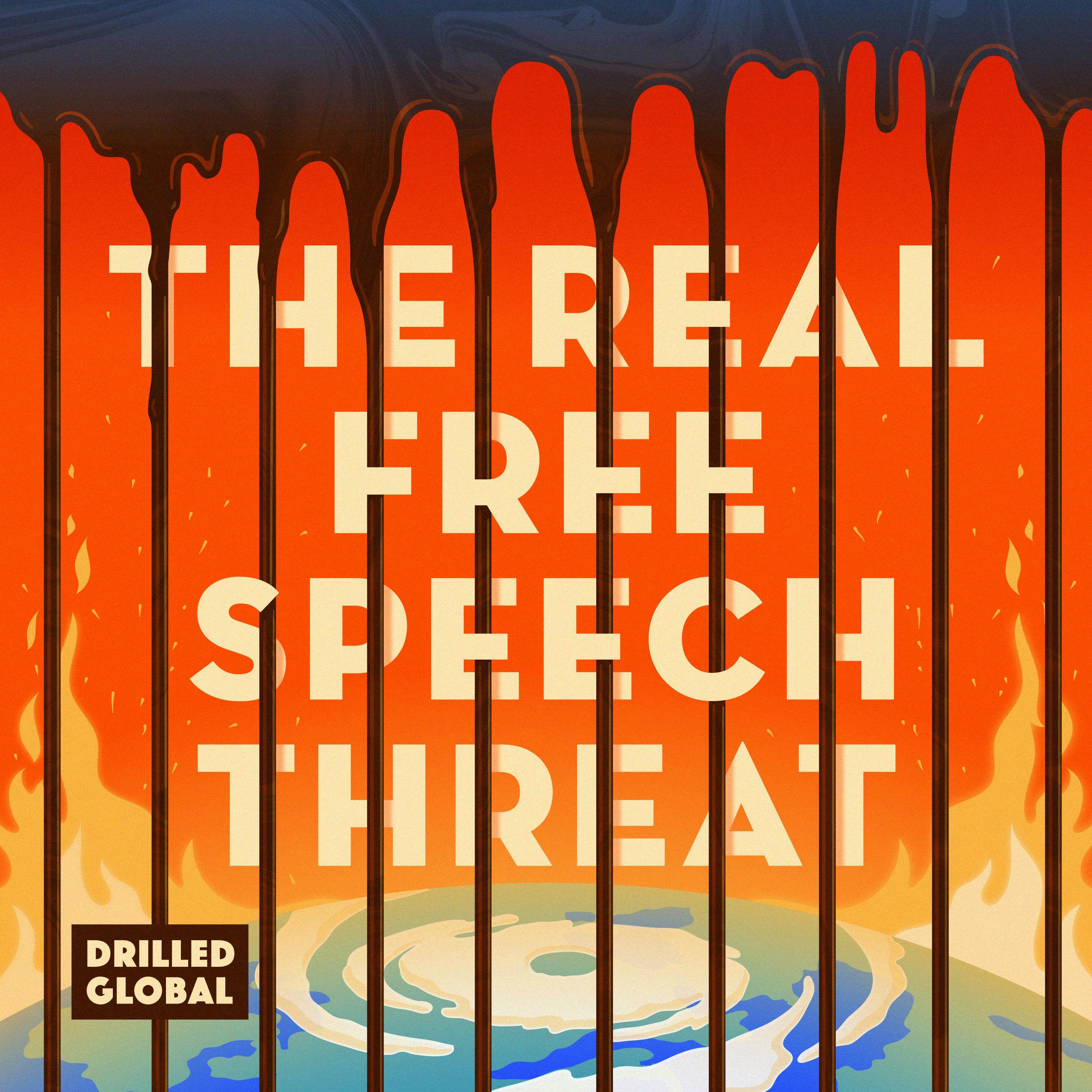
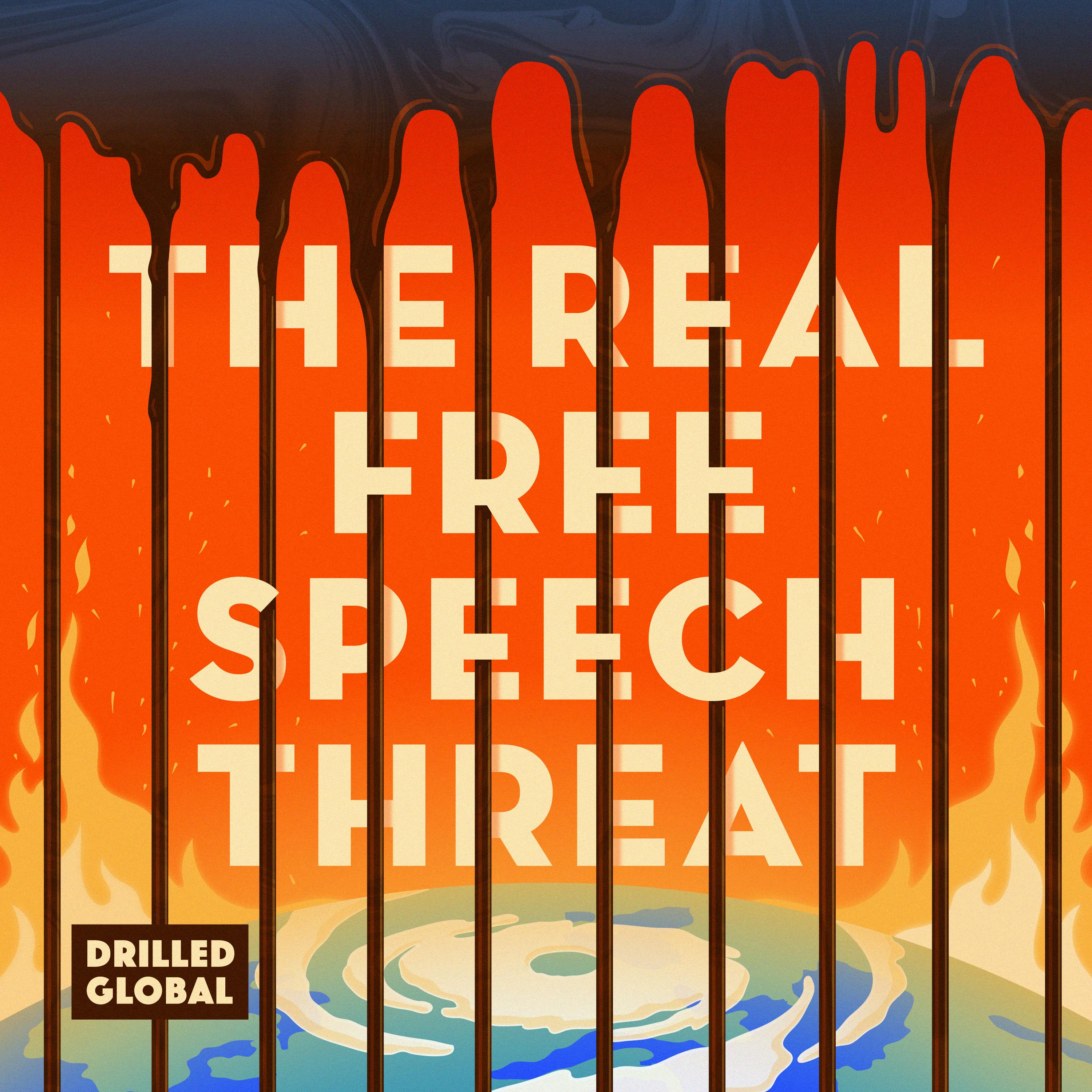

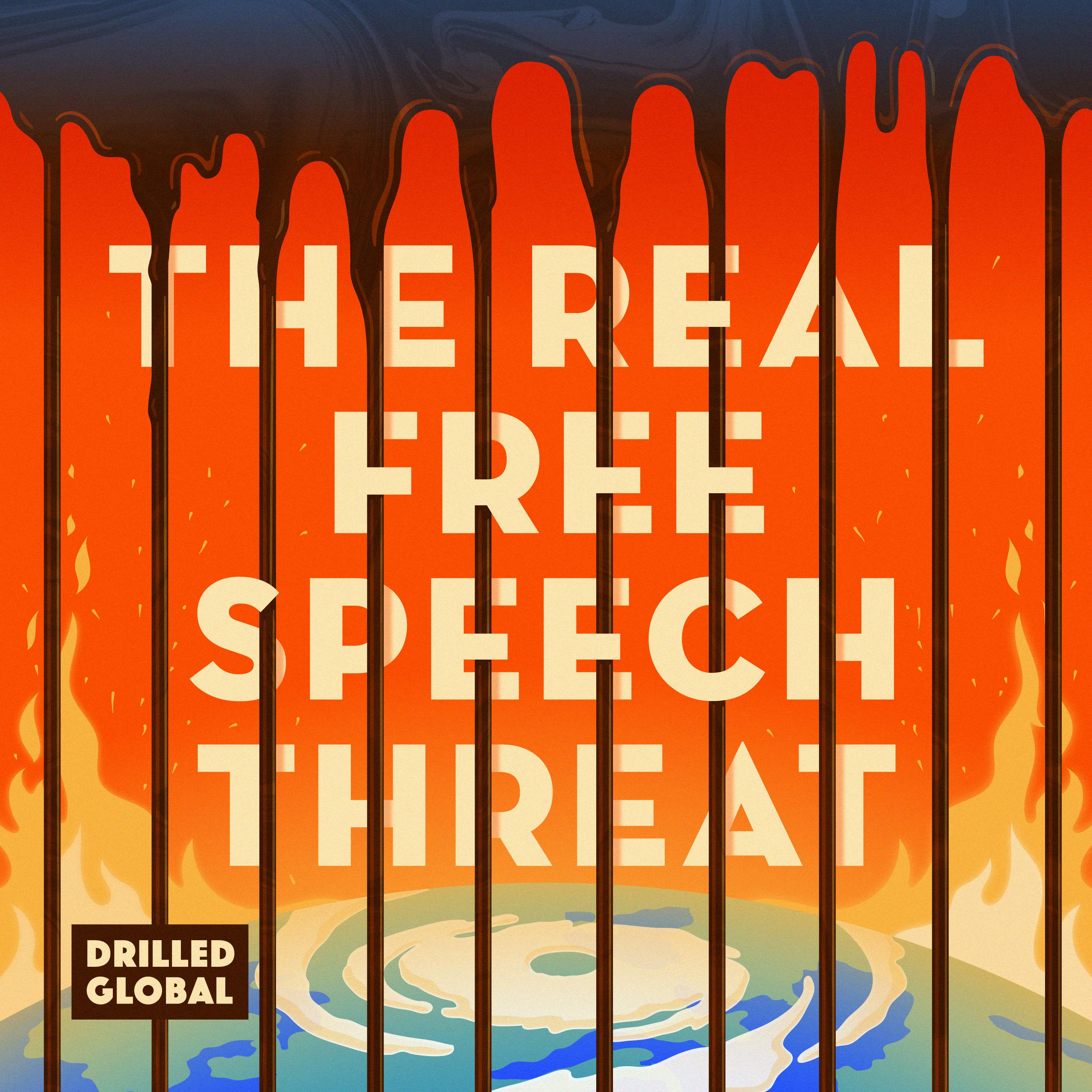
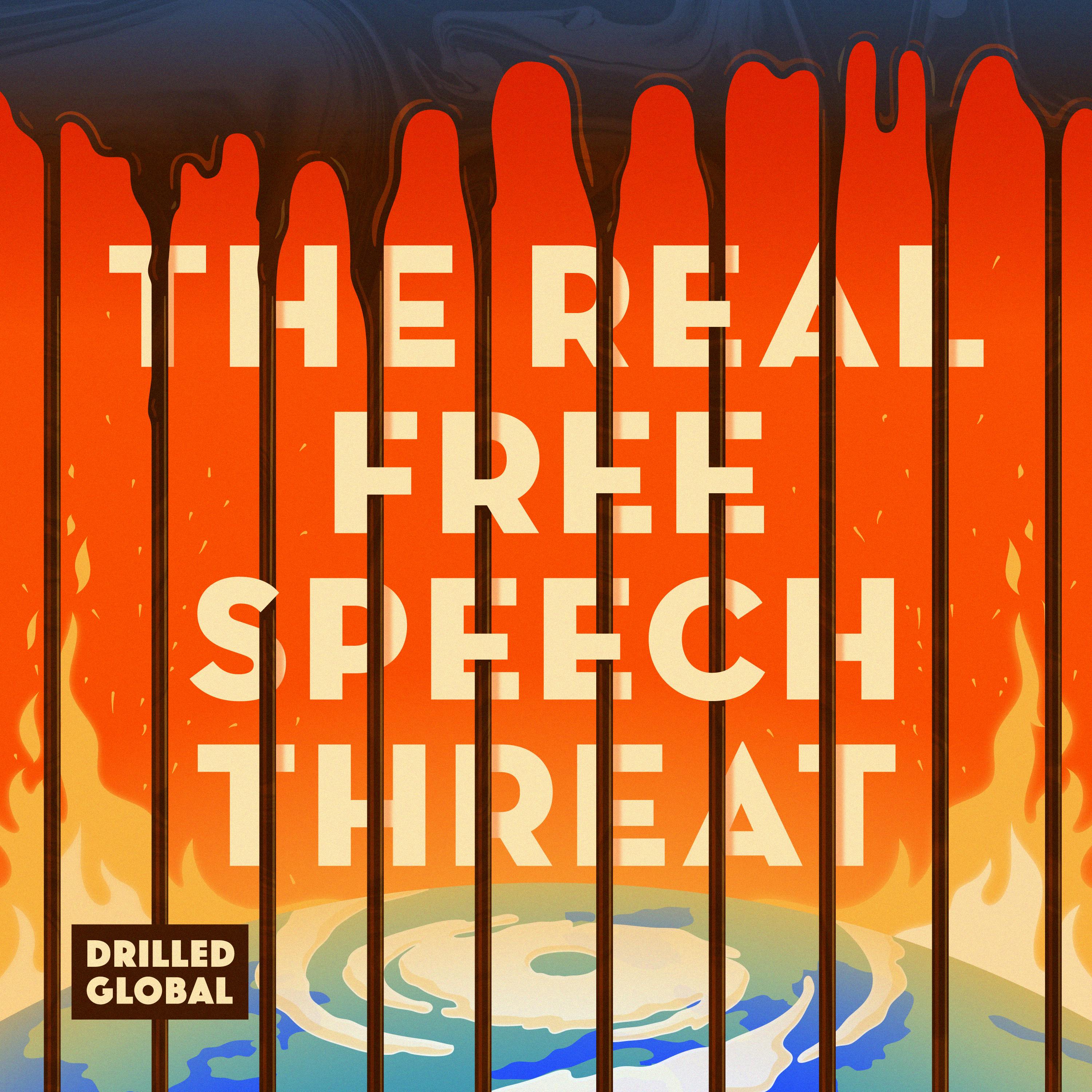
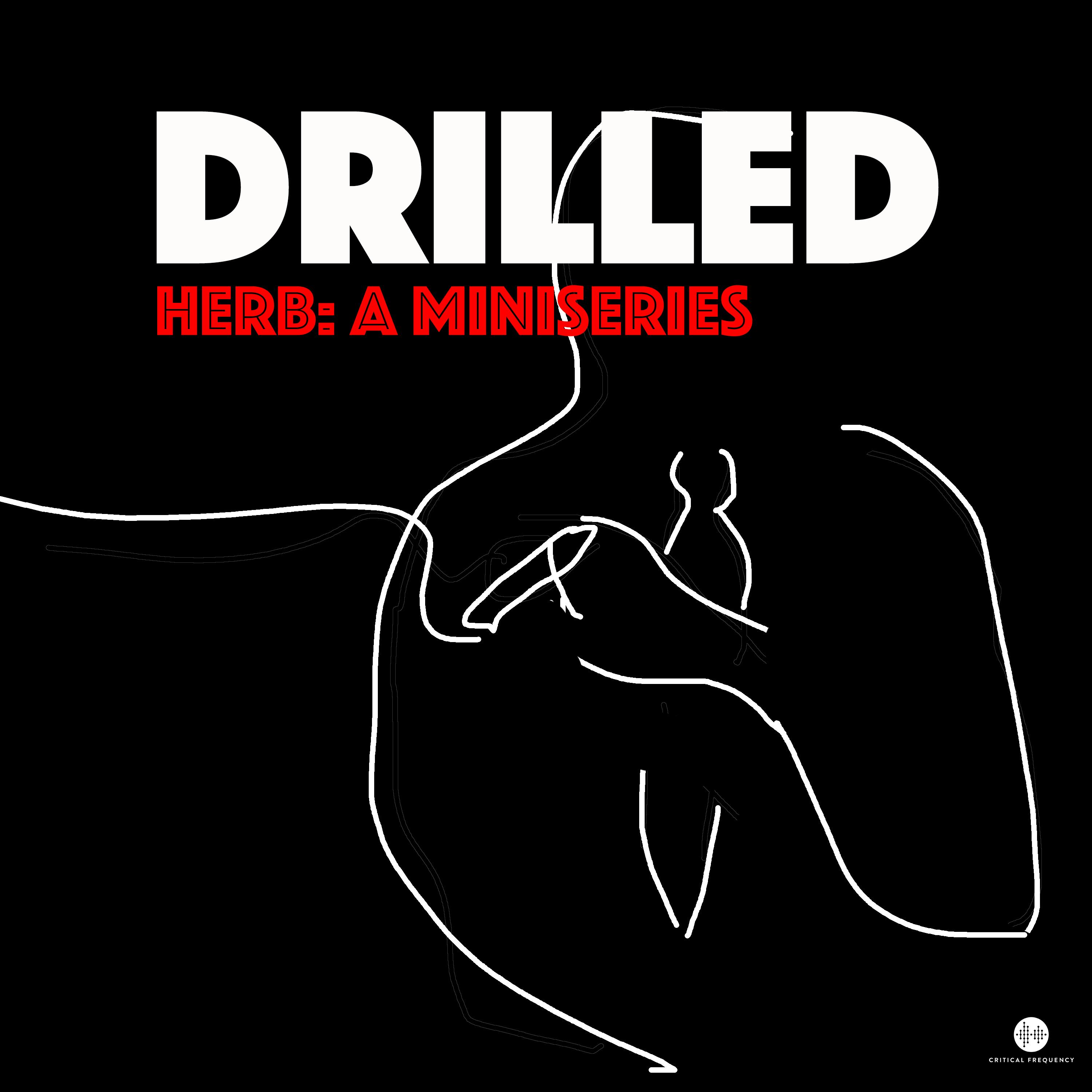



I'm not sure if you guys realized this, but the oil barrel/gavel looks remarkably like a bright red penis when in thumbnail size